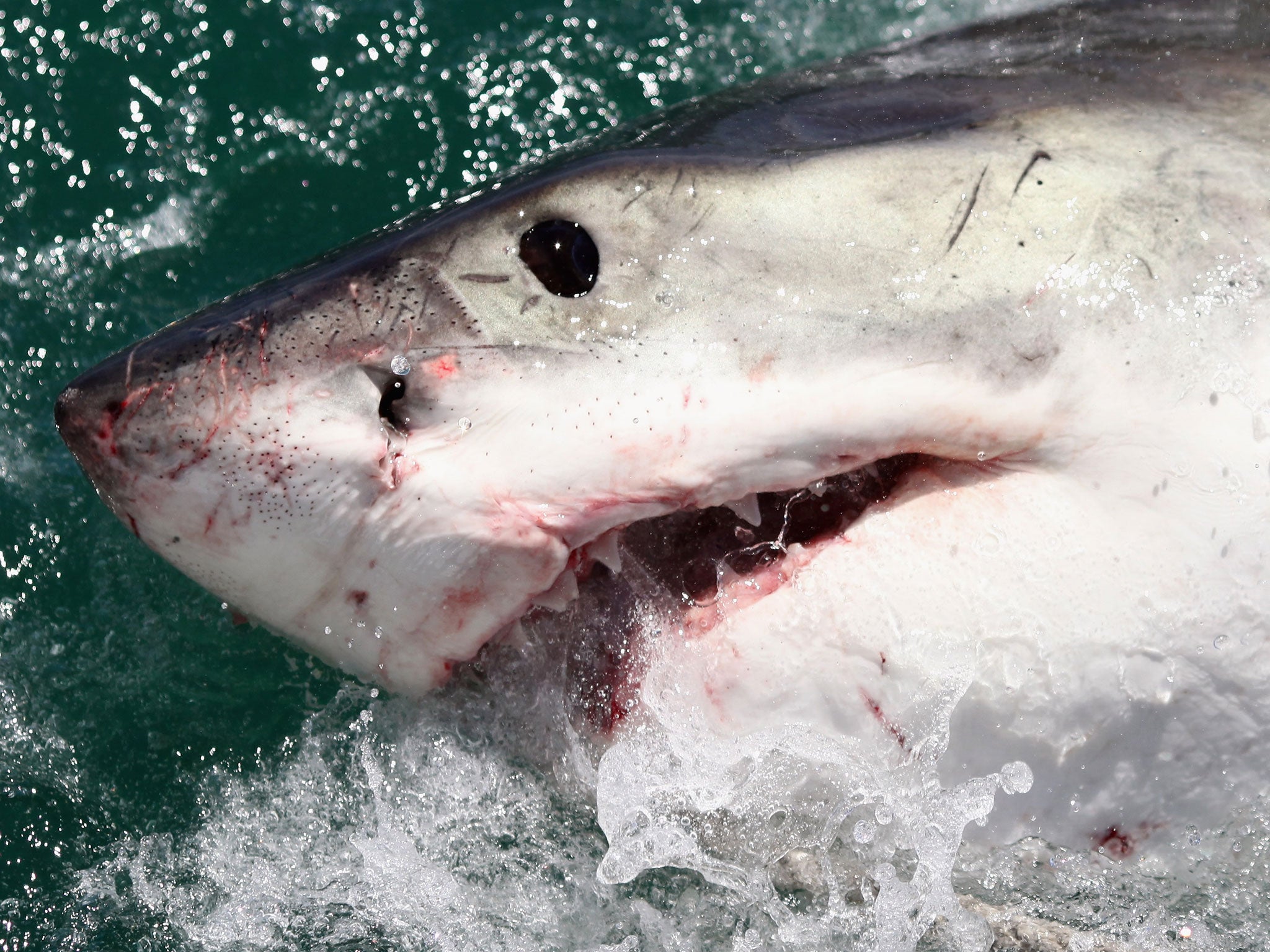'Super predator' that devoured great white shark investigated by researchers
Documentary explores which 'mystery monster' could have eaten a nine-foot-long shark off Australia's coast

Your support helps us to tell the story
From reproductive rights to climate change to Big Tech, The Independent is on the ground when the story is developing. Whether it's investigating the financials of Elon Musk's pro-Trump PAC or producing our latest documentary, 'The A Word', which shines a light on the American women fighting for reproductive rights, we know how important it is to parse out the facts from the messaging.
At such a critical moment in US history, we need reporters on the ground. Your donation allows us to keep sending journalists to speak to both sides of the story.
The Independent is trusted by Americans across the entire political spectrum. And unlike many other quality news outlets, we choose not to lock Americans out of our reporting and analysis with paywalls. We believe quality journalism should be available to everyone, paid for by those who can afford it.
Your support makes all the difference.A team of Australian researchers are attempting to hunt down the mystery 'sea monster' that “savagely devoured” a nine-foot-long Great White Shark 11 years ago.
The incident came to light four months after the researchers tagged the animal as part of Australia’s first large scale great white shark tagging project to study their movement patterns along the coast.
The device was discovered when it washed ashore 2.5 miles from where the creature was initially tagged.
Data from the device showed the healthy female shark suddenly plunged at high speed to a depth of 1,900-foot, (580 metres) beneath the surface.
The tag recorded a dramatic temperature shift from 7°C to 25°C, suggesting the tag was inside the stomach of another animal as it ate the shark.
"When I was first told about the data that came back from the tag that was on the shark, I was absolutely blown away," filmmaker David Riggs said.
"The question that not only came to my mind but everyone's mind who was involved was, 'What did that?' It was obviously eaten. What's going to eat a shark that big? What could kill a 3-meter (9-foot) great white?"
Researchers believe one possibility could be that the Great White was eaten by a two-ton "colossal cannibal great white shark".
Mr Riggs's quest to find the mystery “super predator” responsible for the attack is the subject of his film, Hunt for the Super Predator, which is due to air on the Smithsonian Channel on 25 June.
Subscribe to Independent Premium to bookmark this article
Want to bookmark your favourite articles and stories to read or reference later? Start your Independent Premium subscription today.
Join our commenting forum
Join thought-provoking conversations, follow other Independent readers and see their replies
Comments